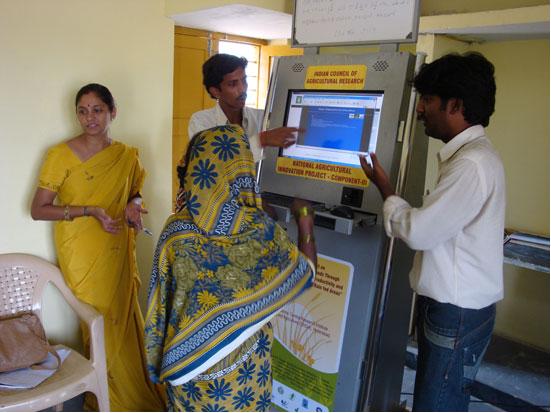Amidst declining natural resources for production and the need to enhance livelihoods of those who depend on agriculture, India ventured on maximizing the potent of information communication technologies (ICTs) to address challenges in the agriculture sector.
Bhalekar, Ingle, and Pathak (2015) studied some ICT projects on agriculture for rural development in India. Three of these projects focused on promoting agricultural development. Lessons from these studies indicate that ICTs can build up knowledge to reduce costs, increase efficiency, and improve agricultural productivity.
The Nargana Group in Andrah Pradesh initiated the iKisan project. The group put up a comprehensive agricultural portal for information and knowledge exchange and e-marketplace. Called ikisan.com, the portal links farmers, trade channel partners, and agricultural input/output companies to provide information, enhance knowledge, and meet business requirements in agriculture.
Another project, Krishiworld.net, provides information about medicinal and aromatic plants, biotechnology, crops, soils, fertilizers, weather, market watch, farm equipment, plant protection, and disease control. It is dubbed as the ‘best’ portal on agriculture in India.
The third one involves ITC Limited, a conglomerate in India, which installed computers with Internet access in rural areas to enable farmers to access e-chopal.com. This site provides farmers with up to date market and agricultural information, discusses issues such as fragmented farms, weak infrastructure, and trade intermediaries that pervade Indian agriculture. It also links farmers via Internet on where to procure agricultural and aquaculture products mainly soybeans, wheat, coffee, and prawns.
India’s experience with these ICT projects for agricultural development opens the door for communication policies to support and sustain agricultural production. Such policies should: 1) encourage the use of ICTs and other channels to share agricultural information to farmers and other relevant stakeholders; 2) recommend the conduct of participatory and rapid communication appraisal to determine agricultural information needs and communication media preferences of farmers and other relevant stakeholders; 3) incorporate the use of appropriate communication strategies, ICTs, and other channels as components of agricultural development programs; 4) enhance faith, commitment, and satisfaction among farmers and stakeholders on communication services for agricultural development; and c) train farmers and stakeholders on how to make the best possible use of ICTs and other communication services to promote agriculture.
Source:
Bhalekar, P., Ingle, S., & Pathak, K. (2015). The study of some ICT projects in agriculture for rural development of India. Asian Journal of Computer Science and Information Technology, 5 (1), 5-7. http://dx.doi.org/10.15520/ajcsit.v5i1.17
(Online copy available here.)
Photo credit: iKISAN.com

